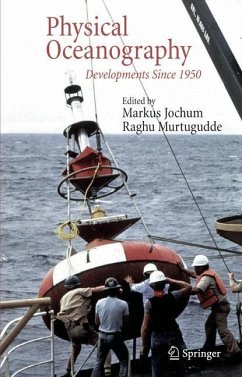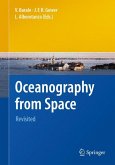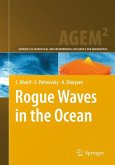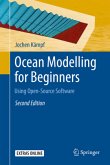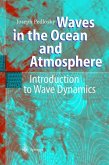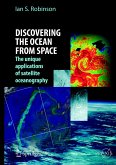This book aims to provide current scientists as well as future generations with a historical overview of the developments in physical oceanography over the last four decades. Senior scientists that have played major roles during that time contributed chapters on oceanographic observations, theory of physical oceanography and modelling.
The book illustrates how research is conducted in physical oceanography, which methods are being used, and how ideas are being communicated between the different branches in physical oceanography.
Unique combination and integrated assessment of three major fields in physical oceanography
Providing both in depth scientific views and a historical overview
Very prominent and reknown authors brought together
The book illustrates how research is conducted in physical oceanography, which methods are being used, and how ideas are being communicated between the different branches in physical oceanography.
Unique combination and integrated assessment of three major fields in physical oceanography
Providing both in depth scientific views and a historical overview
Very prominent and reknown authors brought together
From the reviews:
"This book is an eclectic collection of science memoirs ... . is unique in its approach and has something for everyone. I recommend it highly for students and young scientists, both for historical curiosity and because it will help them to assimilate past lessons learned into their own careers. But I also recommend if for older scientists who have lived through many of the developments of the last half-century, and who may wish to reflect on their own careers in the context of the book." (David B. Enfield, Bulletin of the American Meteorological Society, March, 2007)
"This book is an eclectic collection of science memoirs ... . is unique in its approach and has something for everyone. I recommend it highly for students and young scientists, both for historical curiosity and because it will help them to assimilate past lessons learned into their own careers. But I also recommend if for older scientists who have lived through many of the developments of the last half-century, and who may wish to reflect on their own careers in the context of the book." (David B. Enfield, Bulletin of the American Meteorological Society, March, 2007)

